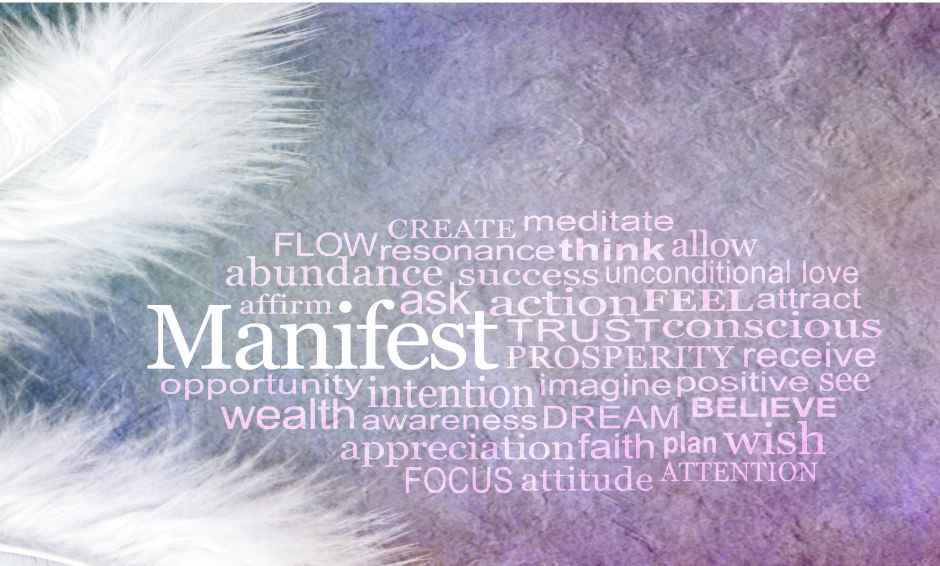New age philosophy, manifestation, and the power of positive thinking have become increasingly popular in recent years. After all who doesn’t love a bit of magic sprinkled into everyday life? The idea that we can change our circumstances by simply focusing on what we want or believing something is possible has been embraced by many – most of us will remember the book The Secret? However, there are some negative effects of this mindset that need to be taken into consideration when discussing mental health.
Toxic positivity is a term used to describe the belief that people should maintain a positive mindset no matter how difficult or dire a situation may be. It involves dismissing negative emotions and responding to distress with false reassurances rather than empathy. This can have a significant impact on mental health, as it denies individuals the opportunity to process and express their true emotions.
The premise of new age philosophy and manifestation is that anything is possible if you believe it is. While this idea can be empowering, it can also lead to unrealistic expectations. In today’s society, there is an immense amount of pressure placed on us to achieve a certain level of success both professionally and personally. New age philosophy adds even more self-pressure as people strive to manifest their desires without taking into account the complexities of life such as time constraints, financial limitations, etc. This can lead to feelings of guilt or failure when things don’t work out as planned or take longer than expected. It’s important to keep in mind that these things take time and effort, and are not always within our control.

Manifestation often encourages people to “think positively” and ignore negative feelings such as fear or sadness. While it’s important to recognize negative emotions so you can find ways to address them, trying to suppress them entirely is not only ineffective but also unhealthy. Ignoring negative feelings will not make them go away; instead, it will only delay the healing process which could create even more mental health issues down the line.
Another danger of new age philosophy is that it often leads people to compare themselves with others who are “more successful” than they are or who seem to have everything they want out of life. This comparison creates an unhealthy sense of comparison and competition which can lead to feelings of inadequacy or jealousy. It also sets you up for self-criticism if you don’t achieve the same level of success as those around you or don’t manifest what you want instantly.
Manifestation and new age philosophies are powerful tools for creating positive change in our lives but only when used correctly and responsibly! Parents, caregivers, and educators should be aware of the potential risks associated with these practices so that they can ensure their loved ones are using them safely and effectively – without creating unrealistic expectations or setting themselves up for comparison, self-criticism or disappointment. With the right guidance and support, we all have the power to use manifestation practices in a healthy way!
Too much positivity can result in developing a “Positivity Bias” – this is a cognitive predisposition to focus on positive information over negative information. It is a natural tendency that can affect our thoughts, emotions, and behaviors. Lets firstly look at the pro’s .. after all it’s not all bad news!
Improved Mental Health: Focusing on positive aspects of life can lead to greater happiness and improved mental wellbeing. Positive thinking has been linked to lower levels of stress and anxiety.
Better Relationships: When we focus on positive aspects of others, it can improve our relationships with them. This can lead to better communication, increased empathy and understanding, and stronger social connections.
Increased Resilience: A positive outlook can help us cope with difficult situations more effectively. It allows us to see challenges as opportunities for growth rather than insurmountable obstacles.
Ignoring Negative Information: Positivity bias can lead us to ignore negative or harmful information or downplay the seriousness of a situation. This may prevent us from taking necessary action to address problems in our lives.
Unrealistic Expectations: A constant focus on positivity can create unrealistic expectations for ourselves and others. This may lead to disappointment when things don’t go as planned.
Lack of Empathy: Focusing only on positive feelings can make it difficult for us to empathise with others who are experiencing negative emotions or going through difficult times.
Positivity bias and the appease/fawn response are both linked to the Polyvagal Theory, which describes how our nervous system responds to stress and danger. The “appeasement” or “fawn” may also occur in the different states. When in defensive states this involves trying to appease or please the person causing the threat in order to avoid harm. When we want to appease in a safe and social state it will look very different and results in different sensations in the body.
For a moment think back when you may have appeased someone in a “safe and social state” and then in a “defensive state”. I’m guessing it feels different? And the stories will be different. Right?
Positivity bias can be seen as a form of appeasing/ fawning response, where we focus on positive aspects of a situation in order to avoid negative outcomes. This can be helpful in some situations, but it can also lead us to ignore important information or downplay potential risks or never express our true self.
Polyvagal Theory suggests that these responses are adaptive mechanisms designed to protect us from harm. However, they can become maladaptive if they are overused or used inappropriately. For example, constantly relying on positivity bias may prevent us from taking necessary precautions or addressing problems in our lives.
Overall, understanding the relationship between positivity bias and appeasement/ fawn response can help us better understand how our nervous system responds to stress and danger. By cultivating greater awareness of our automatic responses and developing new coping strategies, we can improve our resilience and emotional wellbeing.
Whilst positivity bias has some benefits such as improved mental health and better relationships, it also has potential drawbacks such as ignoring negative information or creating unrealistic expectations.
My conclusion balancing positivity with realism is important for maintaining a healthy perspective on life – even when having a positivity bias could offer you a quieter life in the short term.

Driven to improve the emotional wellbeing of young people, adults, and parents, Yasmin Shaheen-Zaffar is the founder and creator of Polyvagal Teen®. She also developed The R.U.D Process® – a practical, step-by-step approach that helps teens and adults recognise and manage stress and anxiety by becoming Polyvagal Aware.
In addition, Yasmin leads several social-impact initiatives that promote steady, consent-based communication and co-regulation:
Glad We Talked® programmes
Neurosloth® Academy
Talky Talk Cards
Scribbledeedo®
World Stop Shouting Day – a campaign to reduce conflict and aggression in everyday interactions
Alongside this work, Yasmin runs a small private counselling practice in North Yorkshire and online, specialising in emotional regulation and working with neurodivergent, multi-faith, and mixed-heritage clients.